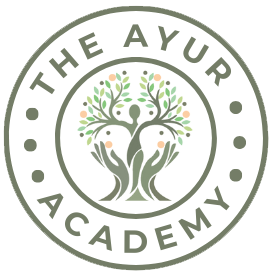Learning to Grow
“Learn to grow” is a simple yet profound statement that encapsulates the essence of personal and professional development. It suggests a continuous process of acquiring knowledge, skills, and experiences with the aim of evolving, improving, and expanding one’s capabilities. Here are key principles to consider when embracing the concept of “learn to grow”:
- Embrace a Growth Mindset:
- Cultivate a growth mindset, as coined by psychologist Carol Dweck. A growth mindset sees challenges as opportunities to learn and believes that abilities can be developed through dedication and hard work. This mindset fosters resilience and a love for learning.
- Set Learning Goals:
- Define specific, measurable, and achievable learning goals. Whether it’s acquiring a new skill, gaining knowledge in a particular field, or developing personal qualities, having clear goals provides direction and motivation.
- Be Curious and Open-Minded:
- Foster a sense of curiosity and an open mind. Actively seek out new information, perspectives, and experiences. Embrace a willingness to explore and learn from a variety of sources, including books, courses, mentors, and diverse individuals.
- Embrace Challenges and Failures:
- View challenges and failures as opportunities for growth rather than setbacks. Each obstacle provides a chance to learn, adapt, and become more resilient. Embracing challenges with a positive mindset contributes to personal development.
- Seek Feedback and Reflect:
- Actively seek feedback from others and engage in self-reflection. Constructive feedback provides insights into areas for improvement, while self-reflection allows you to gain a deeper understanding of your strengths and weaknesses.
- Stay Adaptable:
- The ability to adapt to change is a crucial aspect of growth. Be flexible and open to new ideas, technologies, and ways of doing things. A willingness to adapt ensures continued relevance and effectiveness in various aspects of life.
- Learn from Experience:
- Life experiences, both positive and challenging, offer valuable lessons. Reflect on your experiences and extract insights that contribute to personal growth. Each encounter, whether successful or challenging, provides an opportunity to learn.
- Build a Learning Network:
- Surround yourself with a diverse network of individuals who inspire and challenge you. Engage in meaningful conversations, share ideas, and learn from the experiences and perspectives of others.
- Take Initiative:
- Take the initiative to explore new opportunities and challenges. Proactively seek out learning experiences, whether through formal education, workshops, or hands-on projects. Initiative is a key driver of personal and professional growth.
- Practice Continuous Learning:
- Lifelong learning is a commitment to continuous personal and professional development. Stay curious, update your knowledge and skills regularly, and remain engaged in the process of learning throughout your life.
- Celebrate Achievements:
- Acknowledge and celebrate your achievements, both big and small. Recognizing your progress boosts motivation and reinforces the positive aspects of the learning journey.
- Apply What You Learn:
- The true measure of learning is the application of knowledge and skills in real-life situations. Take deliberate steps to apply what you’ve learned to enhance your effectiveness and contribute to your personal and professional goals.
In essence, “learn to grow” is a mindset and approach to life that values continuous learning, adaptation, and the pursuit of personal and professional excellence. By embracing this philosophy, individuals can navigate challenges, seize opportunities, and cultivate a fulfilling and evolving life journey.
Tag:Learning





